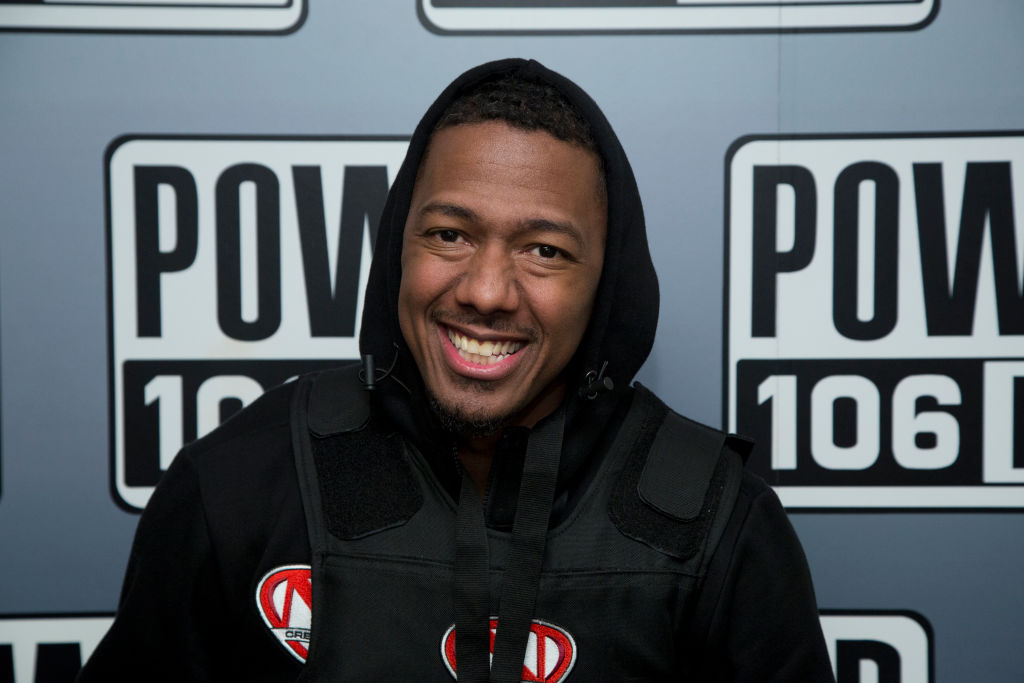Nick Cannon’s Cryptic Tweet Causes Concern After Viacom Firing

Source: Gabriel Olsen / Getty
Nick Cannon has caused some concern after a tweet he posted following his apology to the Jewish community.
Cannon faced backlash this week when a video resurfaced of him making comments that many people deemed anti-Semitic. Cannon was fired by Viacom because of the video and initially he responded to the company by writing a lengthy post about their unfair treatment of him.
However, Cannon followed up this post with a more apologetic post to the Jewish community. “First and foremost I extend my deepest and most sincere apologies to my Jewish sisters and brothers for the hurtful and divisive words that came out of my mouth during my interview with Richard Griffin,” Cannon wrote on platforms like Instagram and Twitter. “They reinforced the worst stereotypes of a proud and magnificent people and I feel ashamed of the uninformed and naïve place that these words came from. The video of this interview has since been removed.”
Apparently, this apology angered some fans because early Friday morning, he tweeted, “I hurt an entire community and it pained me to my core, I thought it couldn’t get any worse. Then I watched my own community turn on me and call me a sell-out for apologizing. Goodnight. Enjoy Earth.”
He later tweeted, “Ya’ll can have this planet. I’m out.”
Certain Black people seemed to criticize Cannon’s apology, believing he didn’t need to apologize in the first place. Their criticism especially came after he posted a photo of himself appearing to speak with Rabbi Abraham Cooper on his YouTube podcast “Cannon Class”. He captioned the photo, “Stay tuned, It’s just the beginning” and he tagged the Simon Wiesenthal Center, which is a global organization that fights anti-Semitism.
https://www.instagram.com/p/CCuuBOUhoii/
Many people in the comment section criticized Cannon for not involving Black leaders in the conversation, such as Louis Farrakhan, despite Farrakhan being the main leader who’s been accused of anti-Semitic comments. Other followers questioned why Cannon was centering white or non-melanated Jews in the conversation. When viewing the picture of Cannon and Cooper, one user wrote, “Can you ask him why they are silent on the treatment of African Americans in America.”
Cannon said Cooper was one of the main people who advised him after he received backlash for his podcast video comments. Cooper told Jewish Insider, “If someone is interested in talking and moving forward and doing things together, the first thing that has to happen is there has to be an apology.” Cooper said he gave Cannon “a little lesson in Judaism 101” as well.
Cooper also asserted, “Whatever changes are going to take place, are not going to be dictated by a rabbi, or any Jew for that matter. I also emphasized that Judaism is not a race, we’re a people, of all kinds of colors. And the idea of reducing everything through the lens of race is a bad thing.”
According to Federal News Network, Cannon made his remarks that were deemed anti-Semitic on an hour-plus episode of his YouTube podcast “Cannon’s Class” last month. He was having a discussion with Richard “Professor Griff” Griffin, who used to be apart of the rap group Public Enemy, and the two contended that Black people are the true Hebrews and Jews have usurped this identity.
Cannon then went on to say that lighter-skinned people “are a little less” and have a “deficiency” that historically prompted them to act out of fear and commit acts of violence to survive. “They had to be savages,” Cannon said.
Bruce D. Haynes, a professor of sociology at the University of California, Davis who’s been studying Black Jews for more than two decades, agreed that Cannon’s remarks echo the ideas of extreme Black Hebrew Israelites and of Minister Louis Farrakhan.
“The danger is that those groups get confused with other self-identified Israelites like (Rabbi) Capers Funnye, who has a congregation in Chicago, and who is very much involved with the Ashkenazim Jewish community,” said Haynes. “So I want to make clear that the term ‘Israelites’ is a tricky term.”
“Is it anti-Semitic to say Black people are the real Israelites or the real Jews? I’m not sure I’d call it anti-Semitism,” Haynes continued. “It’s not a good reading of history, but I wouldn’t call it anti-Semitism. On the other hand, some of those groups that call Jews impostors certainly cross the line.”
Despite some people reportedly calling Cannon a sell-out for his apology to the Jewish community. He still has some support.
“Praying for you. None of us are perfect and all of us are FAR more than the worst thing we’ve ever done or the worst thing someone has called us, on any side of this thing,” wrote activist Brittany Packnett Cunningham in response to Cannon’s tweet. “I am so sorry folks were judgmental in your growth. You are loved. Praying for you. Please stay with us.”
https://twitter.com/MsPackyetti/status/1284118527239233537
SEE ALSO:
Photo Of James Harden Wearing Pro-Police Mask Sparks Questions
Prayers Up For Tamar Braxton: Everything We Know About Singer’s ‘Possible Suicide Attempt’
















